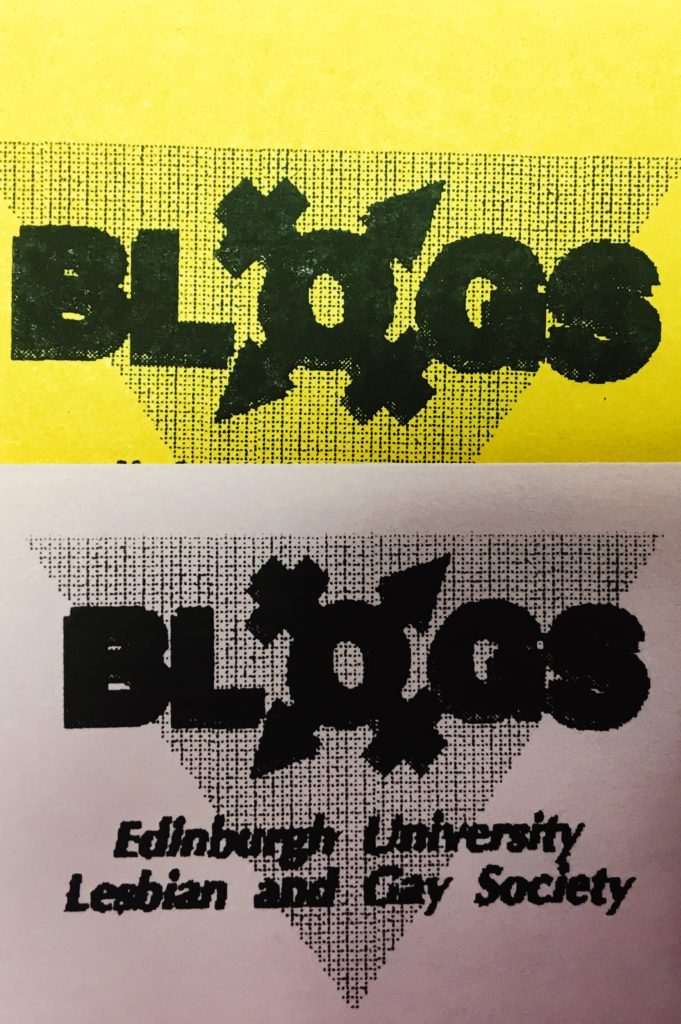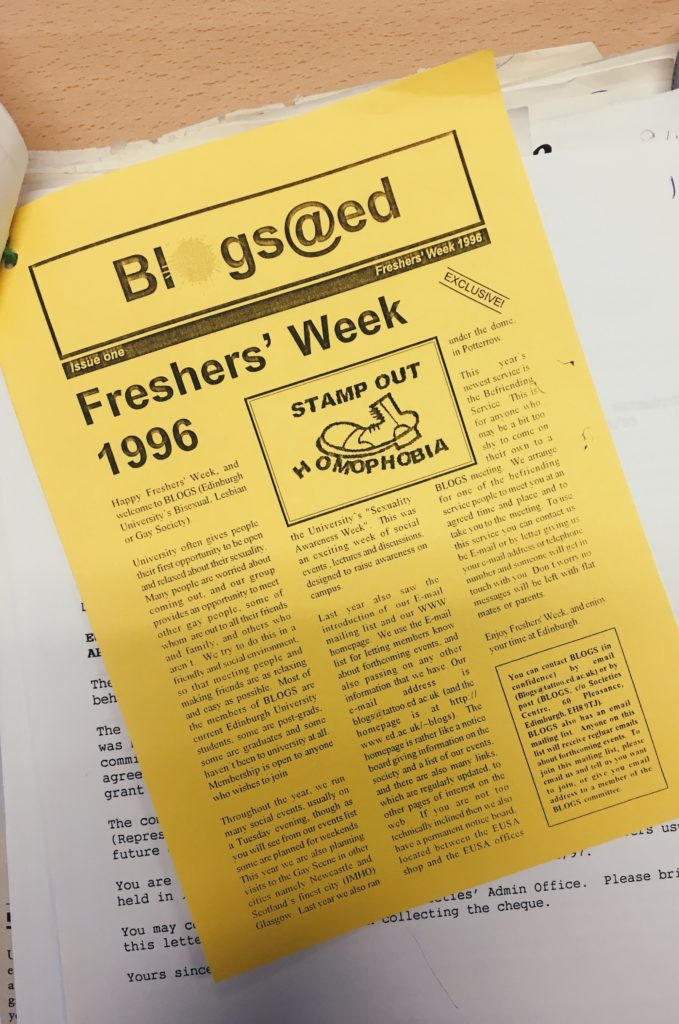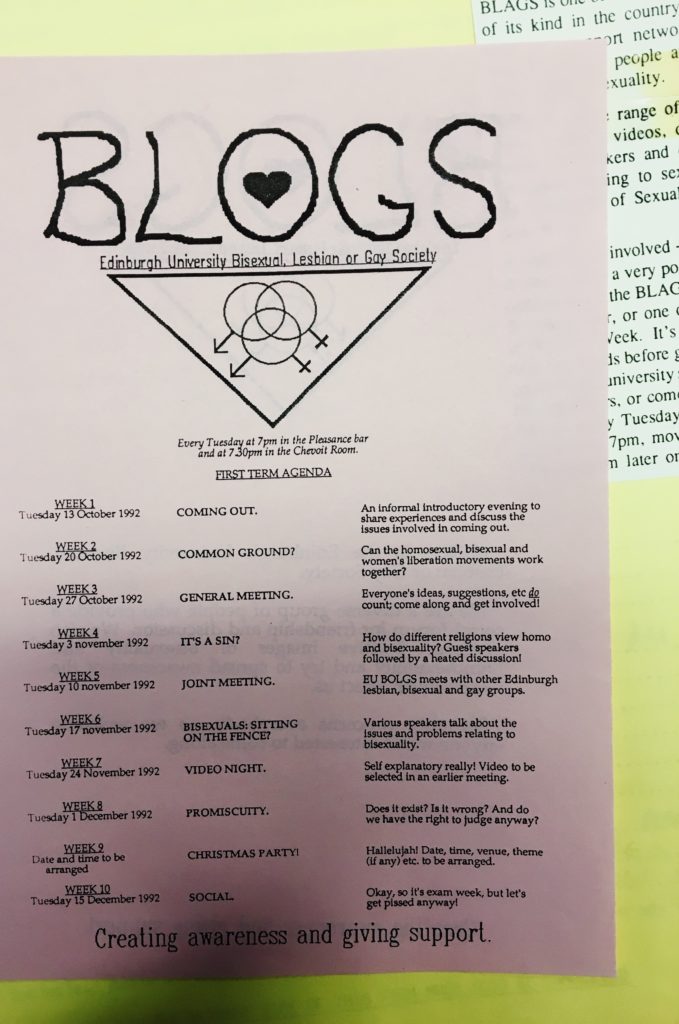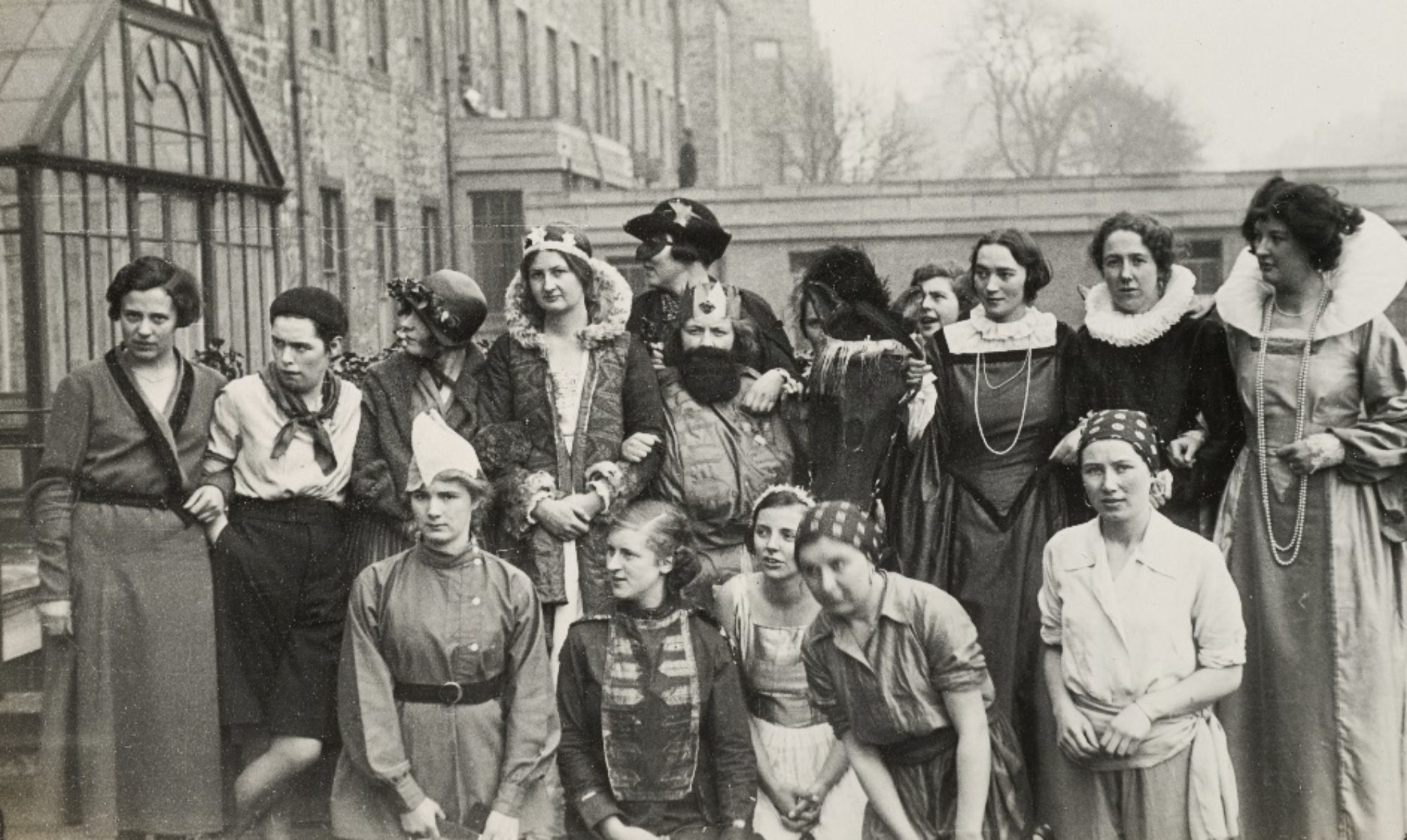
In celebration of LGBT+ History Month this February, I thought it might prove interesting to look back at the archives of the University of Edinburgh Bisexual, Lesbian and Gay Society (BLOGS) to see how the Society and its aims developed over the course of the years, and what are some of the innovative initiatives that were launched by the society to safeguard and promote the well-being of LGBT+ students at the University.
The history of the LGBT+ student society at Edinburgh begun in 1973, when the Edinburgh University Gay Society was officially founded. Originally catering exclusively to male homosexual students, the Society was created, according to its original constitution, in an attempt to
Meet the social needs of the 10% of the student population of Edinburgh University who are basically homosexual in orientation.
Under this banner, the Society operated on a variety of fronts, from the offering of a befriending service, to the mounting of campaigns bringing awareness on the problem of homophobia and its effects on the gay community.
In the academic year 1982-83, the society officially changed their name from ‘Edinburgh University Gay Society’ to ‘University of Edinburgh Gay and Lesbian Society’. The addition of the word ‘lesbian’ to the official title demonstrated the Society’s willingness to pursue inclusivity by continuing to develop and revise their policies. In 1985, the Society established a newsletter divulged to both members and non-members, and in 1988 they sought association to national lesbian and gay organisations so as to provide access to resources and services for their members.
In 1989, in a bid to redress the cultural imbalance discriminating the homosexual student community, the society applied to the Student Association for the provision of funding aimed at building a Lesbian and Gay Library:
It has been noted by the society that Section 28 has been used against public libraries to prevent the further acquisition of gay literature and books relating to gay life and issues. It was further noted that such books are proportionately more expensive to buy than more mainstream heterosexual publications and often not purchasable by students on a low income. These gay students are deprived of their very own form of that written culture which the heterosexual world esteems so highly for its openness, liberality and freedom of thought.
This bid was followed in 1997 by a second attempt at acquiring relevant literature to be held by the society and shared with members on a lending and consulting basis. Simultaneously, the Society decided to take up subscriptions to relevant academic and non-academic journals, so as to provide access to a constant stream of fresh and updated materials.

Meanwhile, in 1996, the Society voted again to change their definition, this time including the term ‘bisexual’ in their title. BLOGs was officially adopted as the Society’s name and new banners were ordered to honour the occasion. During the same academic year, the Society organised, in partnership with the Student Association, the first Sexuality Awareness Week, an annual event that, under different titles, continued for a number of years. Prominent non-binary speakers were invited to participate in the Society’s events and speak on a number of different issues, ‘positively promot[ing] images’ of the bisexual, gay and lesbian community.
The aim of the Society was re-defined accordingly
To represent the interests of bisexual, lesbian and gay students at Edinburgh University by campaigning within the university and organising regular meetings, speakers and social events.
And a new ‘right to self-definition’ principle was added to the constitution:
The Society accepts its members and others attending meetings as being the gender, sexuality and sexual orientation which they choose to define themselves, regardless of birth certificate, physical appearance, usual gender role or sexual or other behaviour. They will be accepted thus for the purposes of attending regular and special meetings, and in how they are addressed and treated in the group.
Throughout the years from 1990 to 1999, the Society organised a number of outings to the London Pride, begun providing ‘coming-out leaflets’ and leaflets on sexual health at Fresher’s Week events, and collaborated with other LGB organisations and groups to provide their members with a range of helpful information.

In 1999, the Society applied for a grant aimed at acquiring a new banner:
We do have a banner at present, and intend to continue using it. However, at our AGM at the end of last term, the name of the society was changed from Bisexual, Lesbian or Gay Society to include the term Transgendered, and this needs to be shown on all of the society’s publicity.
The introduction of the term ‘transgendered’ into the Society’s name and the ‘right to self-definition’ principle into the Society’s constitution marked a further step along the road to a project of inclusivity that had started more than 25 years earlier. The attention to the ever-developing language surrounding LGBT+ identity and the support afforded to self-definition initiatives made the Society one of the most progressive organisations within the Student Association, and helped shape the student community into a more understanding, equal and inclusive one.
